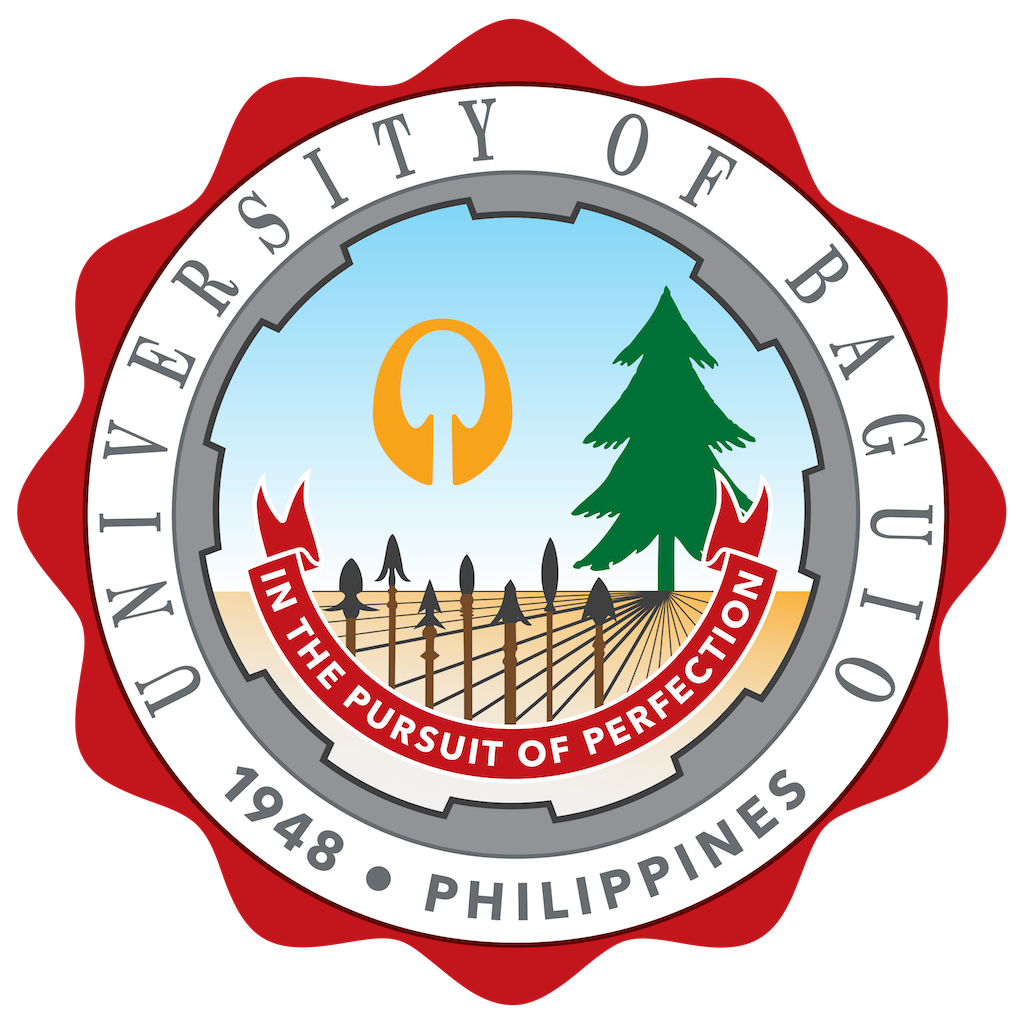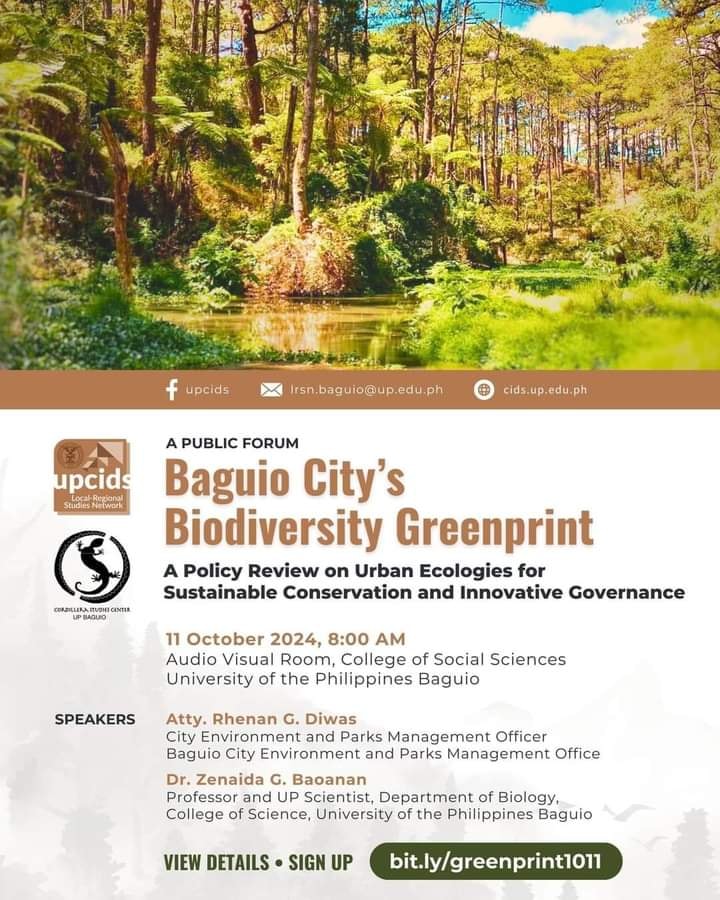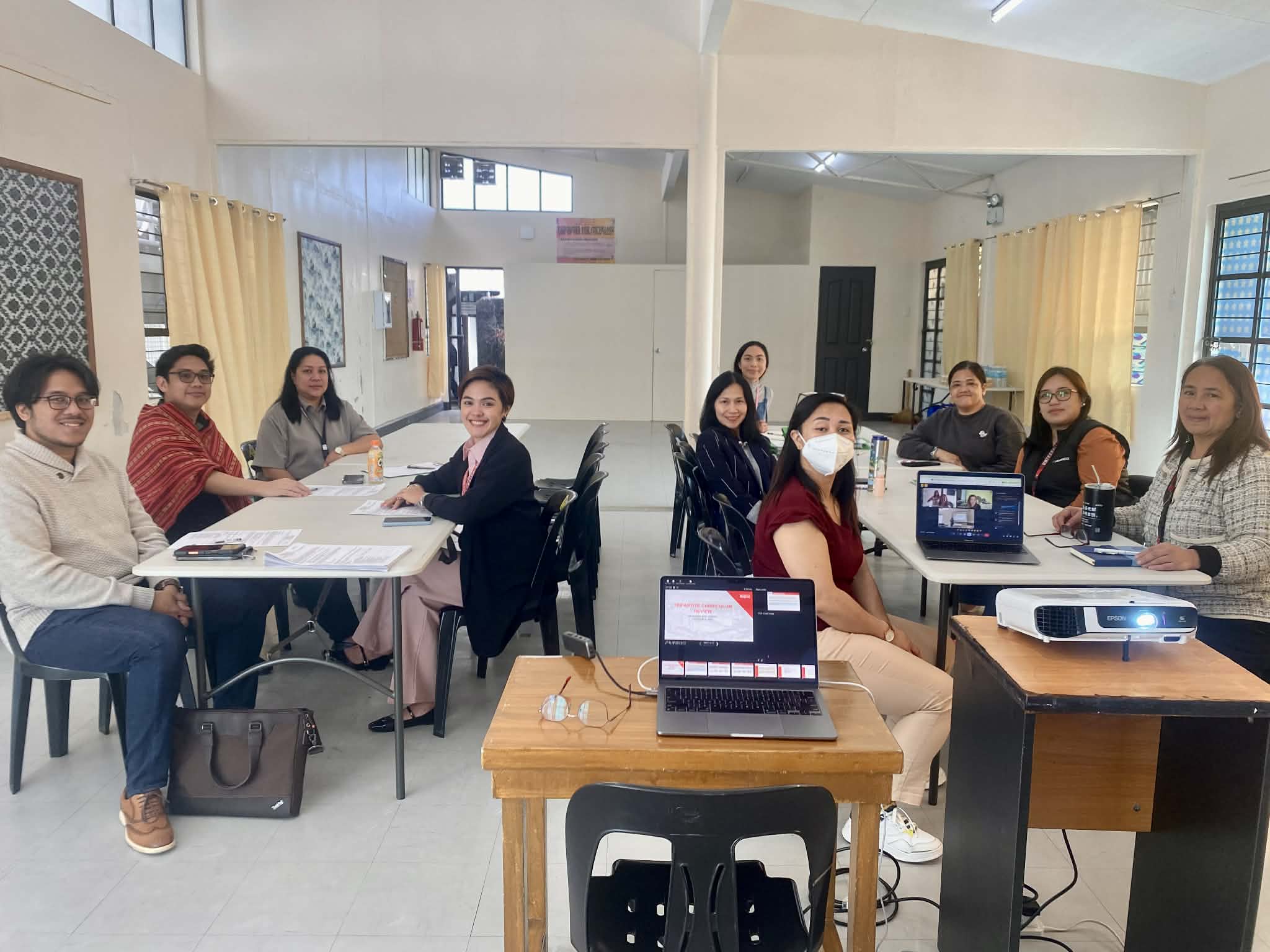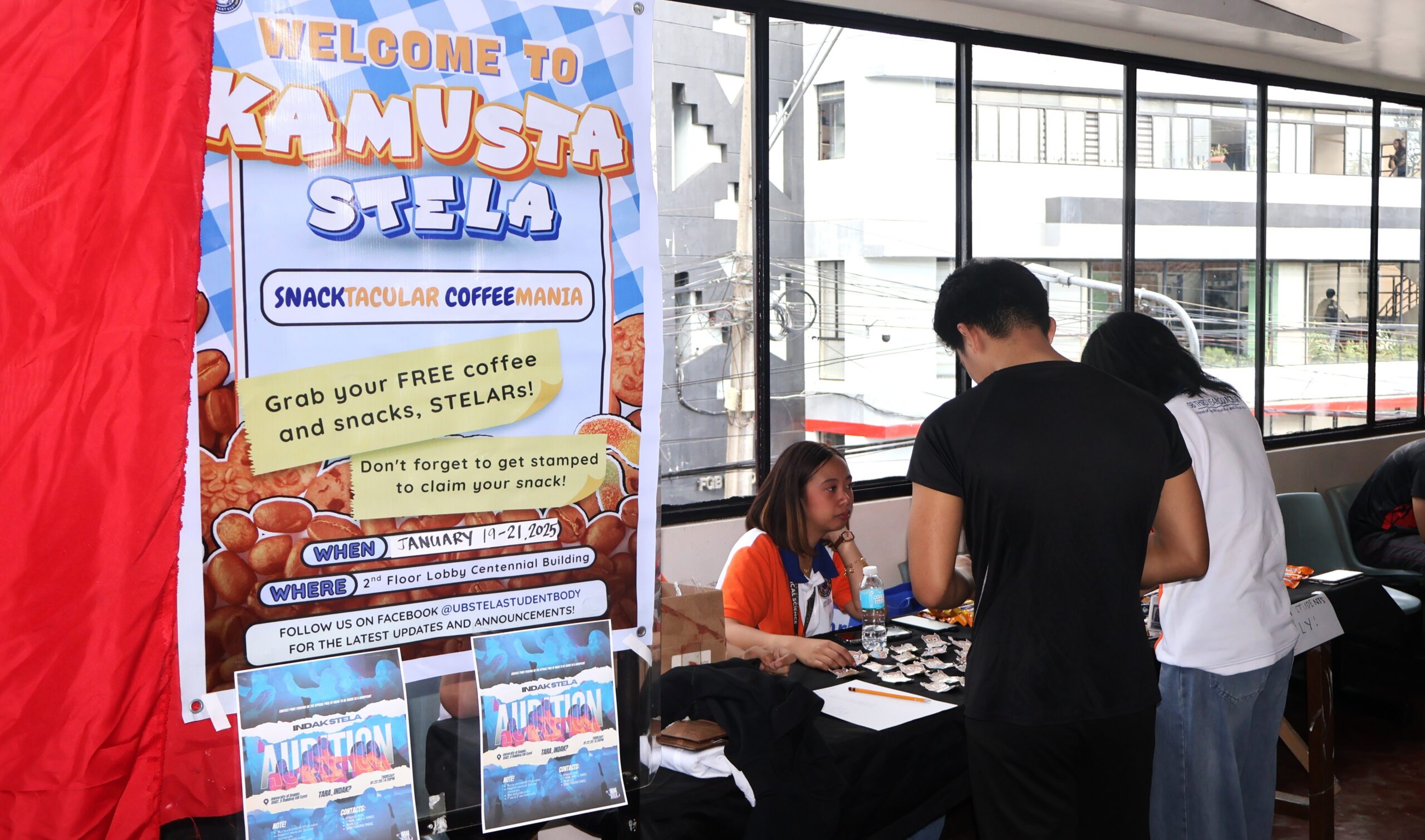The University of Baguio was invited to attend the focus group discussion with the University of the Philippines Baguio. The Local Regional Studies Network (LRSN) of UP CIDS and the Cordillera Studies Center, UP Baguio organized a focus group discussion, “Crafting Baguio’s Green Future: A Focus Group Discussion on Biodiversity and Urban Sustainability.,” last 30 October 2024, at the Audio Visual Room (AVR), College of Social Sciences (CSS), University of the Philippines Baguio.
The initial run of this FDG is that according to UP, “Baguio City’s biodiversity revealed that rapid urbanization and population growth have deeply challenged the area’s ecological sustainability. Baguio is home to several key biodiversity areas (KBAs) that serve as crucial ecological hotspots. Despite this, biodiversity studies in the region are limited, leaving significant gaps in conservation efforts and policy interventions.”
For the project to take off, the research group needed to know the actions or plans that the government, non-government, institutions, and other stakeholders are taking regarding greeneries or biodiversities in their respective offices or homes.
The FGD’s objectives were:
- Introduction to the Project: Present the goals, scope, and intended outcomes of the Baguio’s Biodiversity Greenprint Project.
- Impact Analysis: Explore the specific effects of rapid urbanization on Baguio’s biodiversity and urban ecosystems.
- Stakeholder Input: Solicit in-depth feedback from participants to identify policy gaps, challenges, and opportunities for conservation.
- Collaborative Solution: Facilitate discussions to propose collaborative, actionable policy recommendations that align urban development with biodiversity preservation.
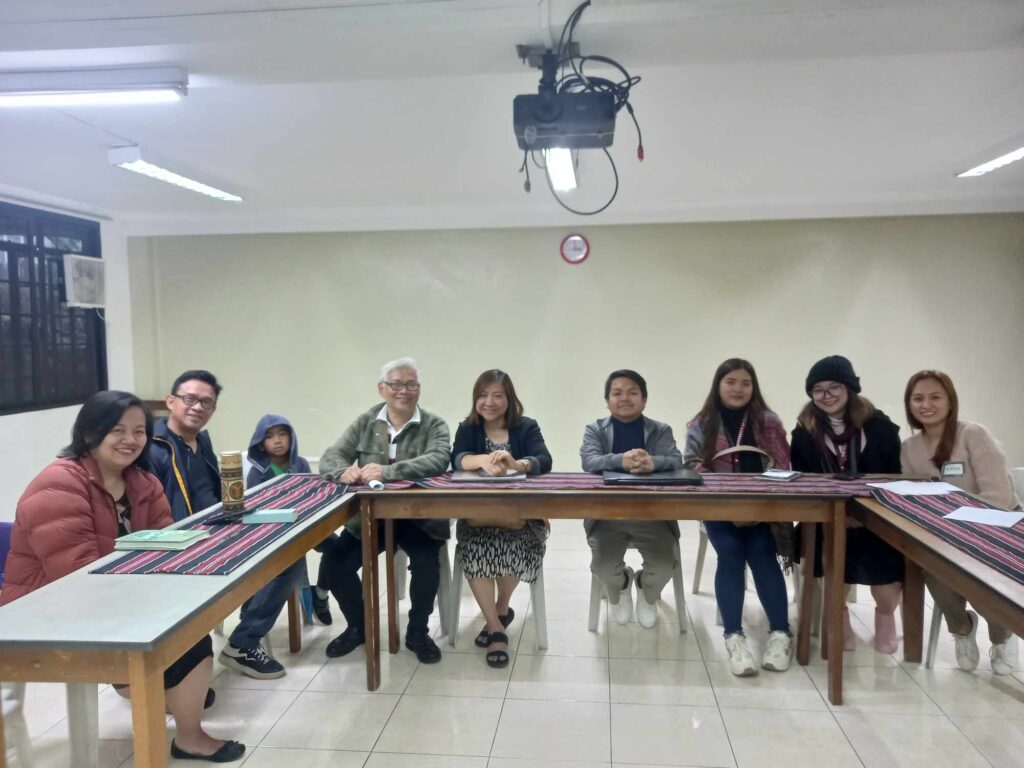
The event was fruitful as the stakeholders were able to give their input to the FGD. The University of Baguio’s contributions to biodiversity are Project Gr.O.O.M. M.E., vertical planting, and the initiative to have plants in the office spaces.
